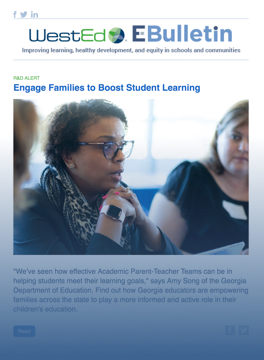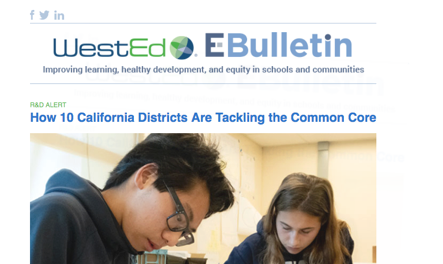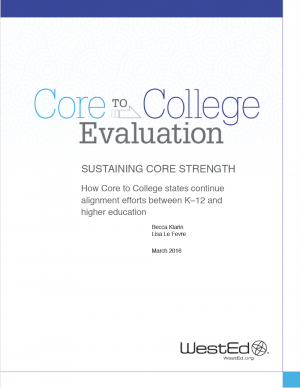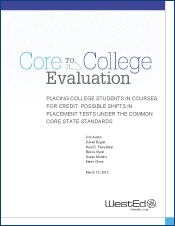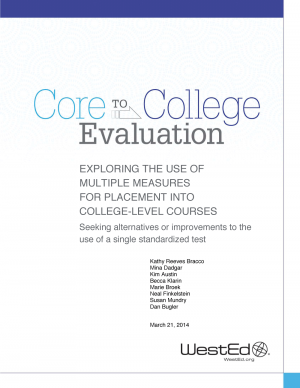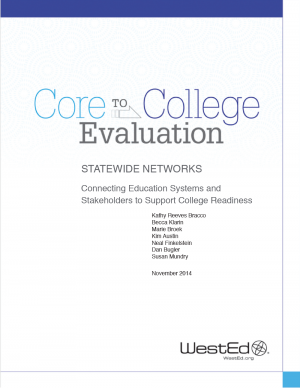Sustaining Core Strength: How Core to College States Continue Alignment Efforts Between K–12 and Higher Education
Description
The Core to College: Preparing Students for College Readiness and Success initiative is designed to promote collaboration between the K–12 and higher education systems in implementing the Common Core State Standards and aligned assessments.
WestEd has been providing evaluation services over the course of the three-year initiative, resulting in a series of reports detailing the findings.
In this sixth and final report, WestEd evaluators use a case-study approach to explore how three of the Core to College participating states continue their efforts to align K-12 and postsecondary education systems to better prepare students for college.
The case studies include details about key components of each state’s respective Core to College work, including:
- The state’s history with systems change efforts in education
- Key staff and organizations that “championed” the Core to College efforts and promoted cross‑system collaboration
- Specific strategies used to align the state’s K-12 and higher education systems
- The state’s approach to standardized assessments and course-placement policies
- Key outcomes of the Core to College-related efforts
Key Findings
The following factors contribute to successful college- and career-readiness standards implementation:
- Environments that foster collaboration and innovation
- People and organizations that are well-positioned to facilitate collaboration
- Strong cross-system networks
- Time, money, resources, and sustainability
- Strategy and long-term planning
Read Other Reports in the Core to College Series
- Core to College Evaluation: Placing College Students in Courses for Credit
- Core to College Evaluation: Building Bridges through Stakeholder Outreach and Engagement
- Core to College Evaluation: Exploring the Use of Multiple Measures for Placement into College-Level Courses
- Core to College Evaluation: Statewide Networks—Connecting Education Systems and Stakeholders to Support College Readiness
- Core to College Evaluation: Implementing the Common Core State Standards: Articulating Course Sequences Across K–12 and Higher Education Systems
Resource Details
Product Information
Copyright: 2016Format: PDF
Pages: 26
Publisher: WestEd
Related Resources
-
Core to College Evaluation: Placing College Students in Courses for Credit
Core to College, a three-year, multi-state initiative funded by the Lumina Foundation, the William and Flora Hewlett Foundation, the Bill & Melinda Gates Foundation, and the Carnegie Corporation of New York, is designed to promote collaboration among K–12 and higher education systems in the implementation of the Common Core State Standards and aligned assessments. This report examines the Core to College states' current course placement policies and practices.
-
Core to College Evaluation: Exploring the Use of Multiple Measures for Placement into College-Level Courses
Using multiple measures to place students into college-level courses increases placement accuracy and may better support the transition from high school to entry-level, credit-bearing college coursework. This report explores the use of multiple measures in seven states.
-
Core to College Evaluation: Statewide Networks—Connecting Education Systems and Stakeholders to Support College Readiness
Learn how social networks affect Core to College innovation and reform efforts in K-12 and postsecondary education systems.
Stay Connected
Subscribe to the E-Bulletin and receive regular updates on research, free resources, solutions, and job postings from WestEd.
Your download will be available after you subscribe, or choose no thanks.
